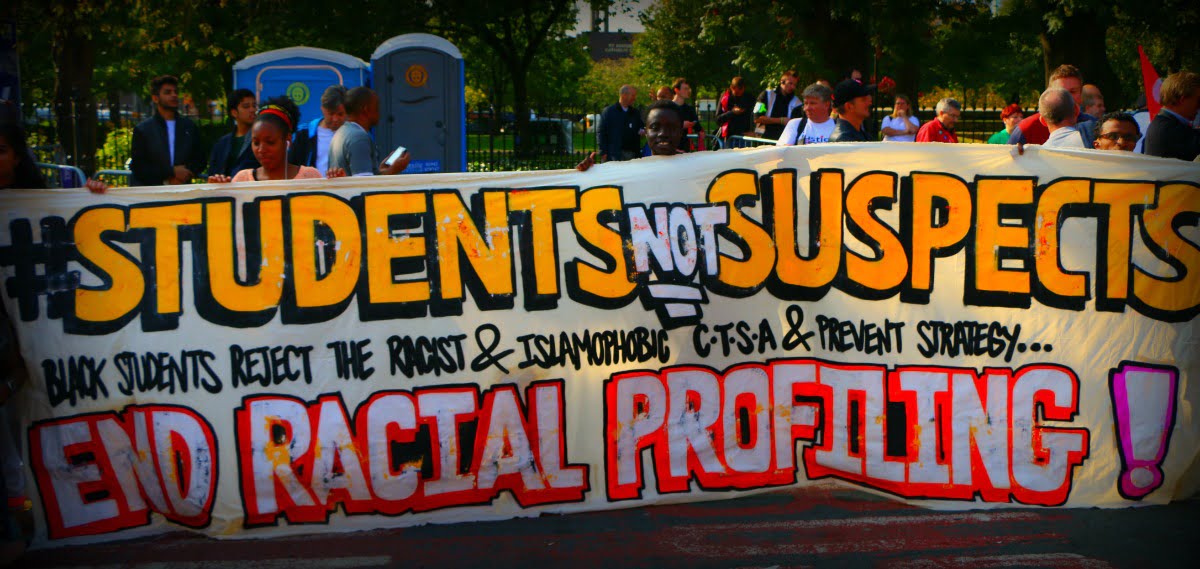Delegates at last week’s University and College Union’s annual congress in Liverpool voted to escalate industrial action against Tory austerity and link the struggle for free education with students and teachers. Joe Attard, a delegate from the KCL UCU branch, discusses the issues raised at this year’s UCU Congress.
Delegates at last week’s University and College Union’s annual congress in Liverpool voted to escalate industrial action against Tory austerity and link the struggle for free education with students and teachers.
500 members and visitors descended on the ACC Hall from 1st to 3rd June for the 2016 Congress: the supreme decision-making body of the higher and further education union.
The university and college workers’ dispute continues
The UCU is presently engaged in industrial action with the bosses’ representatives of the University and College Employers Association (UCEA) over the increasing casualisation and marketisation of their sector. 67% of HE staff are presently on fractional or ‘casual’ contracts, while eye-watering student fees are primarily being used to line the pockets of fat-cat principals and vice-chancellors, who earn £250,000 a year on average.
A two-day strike was called on 25 and 26 May after the union rejected an “insulting” offer by the UCEA to increase HE and FE staff pay by 1.1 per cent, below the rate of inflation as measured by the retail price index. This follows a 15 per cent drop in wages for front-line staff in the past six years, versus a 14 per cent increase for non-academic, senior staff in the same period.
UCU members are presently ‘working to contract’, refusing to work overtime or perform any of the additional tasks expected of university workers, such as offering pastoral support to students. Over 1000 academics have also resigned from external examiner positions.
Congress votes on escalating action
The most pressing question at Congress was how the union should proceed with its industrial action. The NEC’s proposed schedule for escalation consisted of an additional day of action in June/July (to be determined locally at a branch-by-branch level), a one-day strike on 18 August, and marking boycotts in the Autumn. Unfortunately, these proposed dates all fall in the summer (targeting open days and graduations), with no disruption to teaching.
It seems the union leadership is keen to engage in action that looks impressive, but actually handles the university bosses with kitten gloves and – crucially – doesn’t link up the ‘local’ issue of pay in HE and FE with the wider struggle against capitalism.
This was a view shared by a member of the UCU Left faction (who asked to remain anonymous). She argued that the union should maximise the impact of summer action by coordinating a day of action with the upcoming teachers’ strike, which will likely be called for 4-6 July.
“Especially for pre-92 institutions that don’t have clearing, these summer dates aren’t impactful,” she said. “These colleges don’t have clearing and no teaching goes on at all, so they [the NEC] are asking workers to lose a day’s pay for nothing! By linking with the teachers’ strike, we can at least form a bridge to strong and disruptive action in September or October [the beginning of the new academic term].”
“They’re determined not to link the fight for pay with the fight for education!”
The UCU Left faction presented an emergency motion calling on Congress to set a strike date to coincide with the teachers’ action, but it was opposed on ill-defined ‘procedural’ grounds by the NEC. Ultimately, the motion failed to meet the two-thirds majority it needed to be heard – by a margin of two votes!
It was eventually decided that the union will ballot for a day of action in June/July, a one-day strike on August 18th, and marking boycotts in the autumn.
Nonetheless, a London region caucus voted to informally arrange their day of action with the NUT’s upcoming strike and we are confident that many other branches will make the same decision. However, a coordinated, union-wide show of solidarity with the NUT would have dealt a grievous blow to the government, which has already sustained bruises from the increasingly-militant public sector – not least from the junior doctors. We say: all forces to the point of attack!
Preventing Prevent
There was much anger amongst delegates about the government’s ‘anti-extremism’ Prevent strategy, which calls on teachers to spy on their students on behalf of the state. Out-going president, Liz Lawrence, condemned the “hatred and xenophobia” fostered by Prevent, which the UCU has previously voted to boycott.
At a UCU Left fringe meeting on Prevent, one of the panellists was the mother of a 14 year-old Muslim student from north London’s Central Foundation who was questioned about ISIS following a Prevent report after a classroom discussion about ‘eco-terrorism.’
At Marxists we condemn unequivocally state-mandated, Islamophobic harassment of Muslim students, but the experiences of one of our Cambridge comrades (whose college maintained a Prevent on her work with the Cambridge Marxist society) reveal the wider implications of Prevent.
The King’s College comrade relayed the MSF’s brush with Prevent at the fringe, arguing that, as well victimising Muslims, by defining ‘extremism’ as broadly as possible, this ‘counter-terrorism’ strategy gives the ruling classes a means to root out dissent in the youth. Educators must reject this extension of state power into the classroom with all of their vigour.

Casualisation: a product of capitalist crisis
Casualised staff (who make up the majority of the academic workforce) are forced to live a precarious, piecemeal existence, moving from ‘contract-to-contract’ in order to survive. Casuals are also extremely vulnerable to oppression by their employers. Congress delegates from London Met explained how they have faced intimidation and dismissal for participating in union work.
In recent months the UCU’s priority has been to shift as many casuals as possible onto more secure, ‘fractional’ contracts, but this is like bandaging a patient suffering from internal injuries. As a King’s College London delegate and Marxist Student comrade explained at an anti-casualisation fringe, worker exploitation flows from the logic of capitalism. The prevalence of casual contracts is part of the trend towards ‘flexibility’ of labour in the period of capitalist crisis. Given its inability to advance the productive forces, capitalism must squeeze as much as possible out of the working classes while denying them the security that comes with meaningful employment.
The comrade reported on the highly-successful GTA campaign at King’s College London as an example of the kind of assertive, cross-union campaigning the UCU requires to push back against the scourge of casualisation. Victories like these must be the first skirmishes of an ultimate confrontation between educators – united with the wider trade union movement – and the forces of capitalism: the ultimate source of casualisation.
Students and university workers: unite and fight!
Encouragingly, the UCU voted a motion calling on the TUC to mobilise for a general strike, with speakers arguing that “the time for lobbying and letter writing is over” and that the UCU should “take the lead on pressuring the TUC” to take more assertive action.
The union also took significant steps towards uniting with the student movement, such as passing a motion of support for the upcoming boycott of the National Student Survey. In her address, General Secretary Sally Hunt also announced a joint demonstration between the UCU and NUS in the autumn.
Left-wing NUS president-elect, Malia Bouattia was an invited speaker on the closing day of Congress. Malia gave a rapturously-received speech in which she condemned the government’s reactionary Teaching Excellence Framework, the impending rise in student fees and Tory attacks on workers’ and students’ “rights to organise.”
Malia offered solidarity from the NUS and asserted that the UCU’s “campaign for fairer pay and working conditions is [students’] fight too”. She went on to link struggles in the education sector with the wider workers’ fight against the Tories, arguing that striking teachers, junior doctors and tube drivers “all have the same government”.
The fightback against exploitation in education is one of the many fronts in the wider class struggle in Britain, in which the public sector is emerging as a key battleground. University and college workers must join the frontline in this concerted resistance: onward to a co-ordinated, 24-hour general strike to halt this vile Tory government in its tracks!






